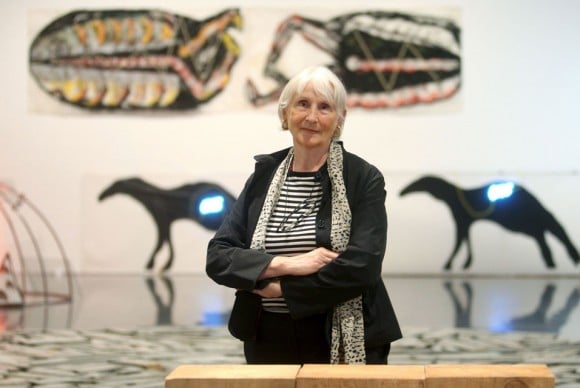
Dorothee Fischer, one of Germany’s leading art dealers, died on Saturday, in the city of Essen, at age 78, Reinische Post reports.
Fischer took over Konrad Fischer gallery in Düsseldorf after her husband’s death in 1996. Under her stewardship, the business continued to flourish, establishing it among the most important contemporary art galleries in Germany, representing artists such as Carl Andre, Joseph Beuys, and Blinky Palermo.
The two gallerists largely ignored art market trends, steadfastly promoting minimalist art, arte povera, and conceptual art even after their popularity declined. The Fischers developed a reputation for supporting and working closely with artists throughout their careers.
Their loyalty and support was reciprocated by the artists they worked with. Bruce Nauman and Thomas Schütte continued to sell their works via Konrad Fischer gallery long after their reputations and markets had outgrown Germany’s Rhineland.
In an interview with Westdeutsche Zeitung in 2007, Fischer explained: “We have a close and very personal relationship to the artists, not only a business relationship, and even exhibited them in difficult times.”
That same year, Dorothee Fischer opened a second gallery space in Berlin. The subsidiary in the German capital runs a program of younger, international contemporary artists, whilst maintaining a strong link to the gallery’s roots.
“When Dorothee and Konrad opened the gallery in 1967, nobody in Germany or Europe had any idea what minimal or conceptual art were,” Thomas W. Rieger, director of Konrad Fischer gallery, told artnet News. “What the two of them did was visionary. It was downright brave to exhibit a whole group of American artists whom nobody in Germany or Europe had even heard of,” he added, emphasizing the Fischers’s contribution to the German art market.
Rieger also revealed that it was Fischer’s wish that the gallery continued to operate under the name of her husband. He confirmed that both the Düsseldorf and Berlin branches would remain open, with Fischer’s daughter Berta taking over the ownership and leadership of the enterprise, and Bendetta Roux taking the reigns in the German capital.
“We will continue our work and try to fill the large shoes that Konrad and Dorothee have left us,” Rieger told artnet News.